#never made a game and only have like basic Java and python down
Explore tagged Tumblr posts
Text


Title Screen Art for my Sonic Fangame!!
(Background is subject to change- )
#miles tails prower#sonic the hedgehog#sonic fandom#tails the fox#sonic#tails and sonic#sth#sonic fangame#hehehe I love starting projects about things I’ve never done#never made a game and only have like basic Java and python down#so this is a process#I CANT EVEN DRAW BACKGROUNDS but here we are#I hate this#but I really wanna make this game
123 notes
·
View notes
Text
The Purge.
Earlier this year, I made some significant and substantial changes to my life, continuing the process of growth and reflection that I started when I quit drinking almost four years ago. (Sidebar: it's remarkable how much clarity I got, and shocking how much pain I was self medicating for so much of my life. I'm so grateful for the love and support of my friends, my wife, and my kids, who supported me when it was clear that I needed to get alcohol out of my life. Be honest with yourself: if you're self medicating emotional pain and/or childhood trauma like I was, give some serious consideration to working on the root issues you're using booze to avoid. I'm so much happier and healthier since I quit, and that's almost entirely because I was able to confront, head on, why I was so sad and hurting so much of the time. I'm not the boss of you, but if you need a gentle nudge to ask for help, here it is: nudge.)
Anyway.
As I was cleaning up my emotional baggage, working on strategies to protect myself from my abusers, and practicing mindfulness daily, I realized that I had a ton of STUFF just sitting around my house, cluttering up my physical living space the way my emotional trauma and pain was cluttering up my emotional space. So I made a call, and hired a professional organizer to come to my house, go through all my bullshit with me, and help me get rid of all the things I didn't need any more.
This process was, in many ways, a metaphor.
We spent several days going through my closets, my game room, my storage spaces in my attic and shed, and eventually ended up with FIVE TRUCKLOADS of stuff I didn't need. Most of it was clothes and books and things that we donated to shelters, which was really easy to unload. I acquire T-shirts so much, I regularly go through my wardrobe and unload half of what I have, so it's easy to get rid of stuff without any emotional attachments.
But there were some things that were more difficult to get rid of, things that represented opportunities I once had but didn't pursue, things that represented ideas that I was really into for a minute, but didn't see through to completion, things that seemed like a good idea at the time but didn't really fit into my life, etc.
I clearly recall giving away a TON of electronic project kits to my friend's son, because he's 11, he loves building things, and he'll actually USE the stuff I bought to amuse myself while I tried to make a meaningful connection to my own 11 year-old self, who loved those things back then too. When I looked at all of these things, I had to accept and admit that 47 year-old me isn't going to make that connection through building a small robot, or writing a little bit of code to make a camera take pictures. I can still connect to that version of myself, but I do it now through therapy, through my own writing, my own meditation. For the longest time, I didn't want to let these things go, because I felt like I was giving up on finding that connection I was seeking, but what I didn't realize (and didn't know until I made the decision to let it go) was that I didn't need STUFF to recover something I'd lost and wanted to revisit.
I think that, by holding on to these kits and similar things, I was trying to give myself the opportunity to explore science and engineering and robotics in a way that young me was never given. Just about everything I wanted to do, that I was interested in when I was 11, was pushed aside, minimized, and sort of taken away from me by my parents. My dad made fun of everything I liked, and my mom made me feel like the only thing I should care about was the pursuit of fame and celebrity. Without parental support and encouragement, I never got the chance to find out if any of these other things would be interesting enough to me to think about pursuing them in higher education. Yes, for some reason, even when I was a really small kid, I was already thinking about where and when I would go to college. I never took even a single class, because I was so afraid of so many things when I was college age, but that's its own story, for another time.
As we went through just piles and piles of bullshit, it got easier and easier to just mark stuff for donation. That drone I used to fly for fun, that I kinda sorta told myself would eventually be used to film something I wrote? Get rid of it, that's never gonna happen. The guitar I kinda played a little bit when I was a teenager, but never really learned how to play properly? Give it to someone who is going to love it and play it so much, it lets them express their creativity in ways I was never able to. All those books I bought to make me a better poker player? Gone. All the books I bought to learn how to program in Python, Perl, Java, and even that old, used, BASIC book I picked up because I thought it would be fun to finally write that game I always dreamed about when I was ten? Give them all to someone who is actually going to *do* that, instead of just think about it.
It was, at first, really hard to get rid of this stuff, because I felt like I was admitting to myself that, even though I *could* paint all these minis (like I did when I was a teenager), even though I *could* study all of these books on Python and Arduino hacking, and probably make something kind of cool with that knowledge, I was never going to. I came to realize that having these things was more about holding on to the *possibility* that they represented. It was more about maintaining a connection to some things that once made me really happy. When I was a kid, I LOVED copying Atari BASIC programs out of a magazine and playing the games that resulted, because it was an escape from my father's bullying and my mother's neediness. When I was a teenager, I LOVED the time I spent (badly) painting Space Marines and Chaos Marines, because it gave me an escape from everything that was so hard about being me when I was 14. When I was in my late teens and early twenties, I spent hundreds of hours trying to learn the same five songs on the guitar, never mastering a single one of them. My time would have been much more wisely invested in learning the scales and chords that I declared were more boring than picking my way through the tablature for Goodbye Blue Sky.
And that all brings me to the thing that was simultaneously the hardest and most obvious thing to donate: all my Rock Band gear.
Did you know that the first Rock Band, which I and my kids and my friends played for literally a thousand hours, came out twelve years ago? Beatles Rock Band is a decade old this year. Rock Band 3 is ten years old, too.
I hadn't played Rock Band in almost five years when my friend asked me what I wanted to do with all these plastic guitars, both sets of pretend drums, and all the accessories that were stacked up neatly in the corner of my gameroom.
But a decade ago, Anne and I would send the kids off to their biodad's house, or to their friends' for a sleepover, have some beers, and play the FUCK out of Rock Band, almost every Saturday night. My god, it was so much fun for us to pretend that we were rocking all over the world, me on the drums, Anne on the vocals. Frequently, we'd get the whole family together to play, and we'd spend an entire evening pretending to be on tour together, blasting and rocking our way through the Who, Boston, Green Day, Iron Maiden, Black Sabbath, Dead Kennedys, and others. It brought us all closer together, and was incredibly valuable for our bonding, at a time when we really needed that.
And I was holding onto all these things, these fake plastic guitars and who even knows how many gigs of DLC, because I didn't want to lose my connection to those days. Part of me hoped that we'd all get together and play again, like we did when my kids were in their teens, like I would when I hosted epic Rock Band parties at Phoenix Comicon, or PAX, back before the world was on fire.
But when I looked at those things, neatly stacked up and untouched except by dust for years, I knew that we weren't going to play again, and that I didn't need these things in my house to validate the memories.
Back in those days, when Ryan and I would spend an entire Saturday afternoon and evening trying to complete the Endless Setlist on Expert (we never did, but we got to Green Grass and High Tides more than once), real musicians would smugly tell us that we were having fun the wrong way, that we should be learning REAL instruments instead of pretending to have already mastered them. I would always argue that the whole POINT of Rock Band was the fantasy. Can you imagine telling a 100 pound kid that he should be playing real football instead of Madden? Of course not, and yet.
But it kinda turns out that some of those smug musicians were right. As I packed up those plastic fake guitars and drum kits, put them into the truck with my real guitar, I had a small twinge of regret, that I had been focused on the fantasy, instead of developing a skill that I could still use today (the last time I attempted Rock Band, maybe four years ago, I couldn't get through a single song on Hard, much less Expert. My skills had faded, and it wasn't worth the effort to restore them). And then I stopped myself, because that's EXACTLY the kind of thinking that stopped me from following my dreams when I was a kid. What was important to me ten years ago, what's still important to me today, was the time I spent with my wife, with my kids, with our family, with my friends, pretending that we were something we weren't. We were doing something together, and that is what matters. Today, I can't recall anything specific about all the nights Anne and I played, though I know we worked our way through hundreds of songs together. But I can clearly recall how much fun it was.
Ryan and I still talk about the time I accidentally turned the Xbox off, when I meant to just power down my toy guitar, after we'd been trying to play the Endless Setlist on Expert for five hours.
Over the years, I had accumulated all this stuff that I was unwilling to let go of, because I felt like that would also mean letting go of the memories that were associated with those things. I felt like getting rid of things without following through on their intended use was admitting defeat, or being a quitter.
But after a year or so of daily, intense, therapy and reflection, after ending contact with toxic and abusive people who were exerting tremendous control over me, these things stopped being the keys to unopened doors, and they just became THINGS that I had to constantly move around to get them out of my way. Because I didn't need them anymore. I didn't need to pain minis like I did when I was 15, because I'm not 15. I'm not living with an abuser and his enabler. I'm not working for a producer who makes it clear to me at every opportunity that he owns me and has complete control over whether or not I'll have a film career.
I didn't need ANY of these things, and once I realized that, unloading them and getting them to people who DO need them felt as freeing and empowering as writing a goodbye letter.
I kept a few things that were still useful, or brought me joy. Books, mostly, and of course all my dice and games. It felt GOOD to admit that I'm never going to learn guitar, or build an Arduino-controlled anything. It felt GOOD and empowering to know that I'm a writer. I get my joy and explore my possibilities through storytelling and character development. THAT is what I love, and by getting rid of all this old stuff (and its emotional baggage) I created space in my life to be the person I am now, a person I love, in a life that is amazing.
I still have some emotional clutter, which is to be expected and isn't a big deal. The really cool thing is that I have physical and emotional space, now, to deal with it.
1K notes
·
View notes
Note
Okay, I'll bite. How and why did you learn to code?
HI LIN thanks for biting this is a story that tells you quite a lot about me as a person
so some background: my parents are both in compsci. they're the late 80s, early 90s silicon valley crowd, they've both had their fair share of established companies and startup-hopping, and my brother and i grew up here
my brother is about 5 years older than me and took to coding like a fish to water (like a duck to water??) which is to say he started programming on scratch at the tender age of.... i don't even know, honestly, maybe 9? too young for me to really remember, and he's been a compsci prodigy ever since
but then. then there was me.
now i do love scratch. when i was little i always copied my brother (not in like a cute way, in a 'if he can do that i can do it too' mindset that meant my third grade teacher REALLY struggled to find book recommendations for me that i hadn't already read. since my brother was above his grade's reading level, and i would read whatever my brother read. yeah that's the kind of kid i was/am)
so naturally i did what he did. i programmed on scratch, i did advanced math courses, i was in CHESS CLUB (i am so bad at chess by the way. i am not good at it. let's establish that. i think i beat my dad once and i genuinely don't know if he let me win or not. i never beat my brother so in that respect i failed. but i'm better than my mom so there's that)
HOWEVER. around fourth or fifth grade i was like hey. maybe i want to like... forge my own identity. and not just turn my life into 'do whatever elder brother does BUT BETTER.'
and thus began my campaign to NEVER DO ANY CODING EVER FOR THE REST OF MY LIFE AND WHILE I'M AT IT FUCK MATH
this gets long so there’s more under the cut sjflsghf
there are two problems with this. the first problem is my inherent pride and the fact that, despite my best efforts, i am actually decent at math and too proud to intentionally fuck it up. so i wound up in honors math. that made part 2 of my independence campaign a little difficult.
the second problem is that my parents were just as determined for me to learn to code as i was to avoid anything to do with coding for the rest of my life
(the third problem was actually a serious problem for this goal. and that was that in seventh grade, when i had a required compsci class where we learned basic, i found myself... enjoying it. HORROR OF HORRORS.)
so i was quite vocal about my anti-math stance and my determination to explore other avenues of life, to which my parents responded by listening with bat-ears whenever i talked about my compsci class and/or my love of spreadsheets so that they could jump on it and say 'YOU KNOW, COMPUTER PROGRAMMING IS JUST LIKE THAT, I THINK YOU WOULD REALLY ENJOY IT' whenever i said something remotely applicable
and to which i responded, of course, by plunging ever deeper into performing arts because fuck compsci, except when it's basic, because then i understand everything because of messing around w scratch when i was little and it's easy and i'm ahead of the rest of the class and can stare into space while the rest of them struggle with closing their parentheses (which is not to say i never messed up my parentheses. i totally did)
now, my brother, because he's a nerd, went to compsci summer camps where you'd spend a week or two learning some program or language. he did things like java and c++ and then would come home and use this knowledge for robotics club. like i said. nerd.
but my parents sensed a golden opportunity. namely, 'if we can get birl to go to these camps, she will actually learn programming things (not just being ahead of the class and spacing out in basic), and we'll probably get her to agree since it's only a week and she can do cost benefit analysis'
and, because i CAN do cost benefit analysis, i agreed to that deal. i'd go to a few of these camps, and then we'd agree that i was done with my parentally mandated computer science requirement. i learned some 3-d modeling, i learned to use unity (which involved some c+ as well), and i learned some java, and all was well. the camps were like 5 days long. we mostly worked on self-directed projects so i could do whatever the hell i wanted (and i made some pretty cool maze games if i do say so myself-- one of them in unity and one of them as a text-based game in java)
and.... horror of horrors....... i didn't hate it.
(of course i didn't want to go BACK any more than i had to but i also didn't hate every moment of those weeks)
so we were out of the woods right?
except no. we weren't.
because here's the thing. my high school ALSO had a computer science requirement. we had to take at least a semester. there were 3 levels offered: AP compsci, normal compsci, and then easy compsci (not its actual name) for the people who did not give a single shit
obviously i wanted to take the last one. my parents really wanted me to take AP but were willing to settle for normal. you will notice there was no overlap
i wrangled my way out of taking AP because that was a year-long course and i didn't have space in my schedule (my parents are wonderful in the sense that they didn't want to infringe on my actual interests to force me to do compsci which meant i had LEVERAGE)
but we literally wound up discussing it with the dean of students who was like 'well if you're capable of AP and just not taking it for schedule reasons then easy compsci would probably be boring for you!' which was an unhelpful take, thanks EVAN
but i did get my way by virtue of volunteering with a progressive tech organization in lieu of taking regular compsci, so i took easy compsci (in which i used scratch again, yay nostalgia, and also briefly flirted with html) and also wound up learning to use squarespace which is criminally easy but you can make it look like you're an expert
and all this while i was getting better and better with spreadsheets due to my own individual love for spreadsheets that near as i can tell, nobody in my family shares (my dad does have a lot of spreadsheets but his aren't as detailed as mine and he doesn't include data validation so HA)
all of which (plus my ap calc and stats classes) combines to mean that while i would not be able to just sit down and write you some code, if you give me access to stack overflow and tell me what language it's supposed to be in i can probably figure it out. especially now that i've become familiar with python by accident (well, more by my desire to write fic)
and because now i'm stuck in a rut, my current internship is with another civic tech company and that's probably what i'll wind up doing next summer as well. i don't actually work on software but i do comms which means i need to be able to have conversations with the engineers so i've been learning on the job. i know so much help
SO. with regards to my fic, my parents would both be thrilled because i taught myself some of a new programming language (python) and disappointed because i taught myself some of a new programming language with just stack overflow and some time and all i'm using it for is fic.
but near as i can tell we finished that battle long ago. it was a resounding victory for birl and i continue to expand my technical talents into areas like photo/video editing and CRM tools.
thank you very much *bows*
10 notes
·
View notes
Note
Probably a loaded question, but with all the game engines you've worked with, what are the pros and cons for each? I'm really interested in trying my hand. So far I got rpg maker mv for a paid engine, but I'mma l look into free ones also. (Game Maker seems a bit expensive for my tastes :()
GOD YEAH game maker is... so expensive... i’m hoping my bro gets me it for Christmas when its on sale. but even then like. ouch. that price tag.
so here are all the programs I've used to make my fangame at some point:
uh. long ass post ahead.
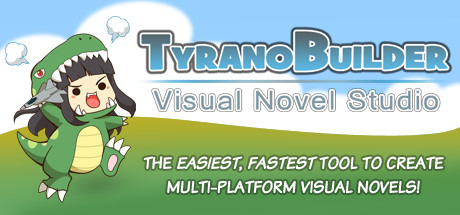
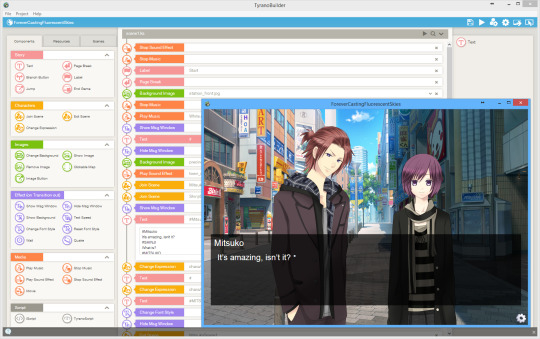
COST: 15$
its a visual novel making program! like RPG maker, its not code based, but visual based! you just click and drag the stuff from the left onto the right area and boom. game made. Honestly, a really good introduction to making a video game! Its very basic and simple, which is very newbie friendly. Lots of Youtube videos on how to do things too.
You can technically do more with it by using the program’s coding language OR by using java-script, tho personally i’m not good at coding yet so i never really saw what i could do with it. i haven’t really used it in a year but honestly, i can’t thank it enough for being such a good introduction to game development.
Pros: cheap one time fee, easy for newbies and visual based.
Cons: very limited to just visual novels, and even then to do more complex stuff you really have to work for it to get it to work.

RENPY
COST: FREE
THE free visual novel program. It’s a bit of a learning curve since everything is done in script, (ie: no visuals) BUT its VERY simple and easy to learn and once you get it and it clicks, you can do a lot with it! because you code it yourself, the limits are nearly endless. uses it’s own language, but you can also use python (or its built on python? can’t remember lol) and python is built for newbies.
Pros: free, limited only by what you’re willing to learn to do with code, while you can make RPGS its pretty limited since its not built for it
Cons: only super easy to use once you get over the learning curve. if you have any experience w/ code, its a breeze. if not, still easy to learn!, you can only use it for rpgs, NOT a visual program
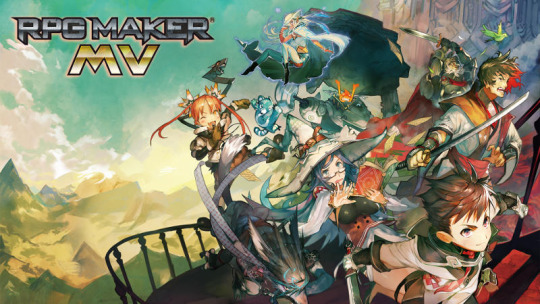
(and other RPG Maker game engines)
COST: 50$ (EXPENSIVE! but it does go on sale once in a while. i got mine at 20-ish$)
idk if you plan on making a UT fangame too but its totally possible!!! i’m doing it!! and i would be very happy to share/help others with theirs. i mean. mostly its just plugins from other people, but i did set up a pretty nice inventory and i can show ya’ll how i make the sprites. (since UT has a lot smaller tileset size) and honestly, if you need help w/ this program my instant messenger is always open B)
uh anyway. RPG maker is a godsend for someone like me who is very visual minded and has a hard time grasping code. i know python... ok-ish. im still a noob. ANYWAY yah, theres LOTS of tutorials and plugins you can sink your teeth into, big communities who are all happy to share and help each other out. its pretty great! (actually, you could say the same w/ all these game engines! but the RPG maker forums is like. super nice from what i’ve seen)
so like, with youtube you can learn how to use it within a day or two, frankly. and you can do SO much with it w/ plugins. and the community is ages old, and the game itself is a few years old and has plenty to offer. you need something? likely someone else has made a plugin or forum post on the topic and someone has helped them figure it out. HIGHLY recommend this program if you can afford it (and you already have it, so honestly, just go w/ rpg maker.)
i wouldn’t super recommend the default assets cause the community hates them. they’re way over used and people see it as “lazy.” its good as like, a stepping stone but you shouldn’t rely on them for your whole game if you can manage your own graphics or pay someone to make them. if not, theres still free tilesets you can use if you look for them.
Pros: big friendly community, lots of resources to use, capable of A LOT of things, hassle free for the most part!
Cons: price is big, but it goes on sale often and the older versions of RPG maker aren’t that much different/worse. granted, MV is the best but like, the others aren’t bad. quite a bit to learn at first, but really simple honestly.
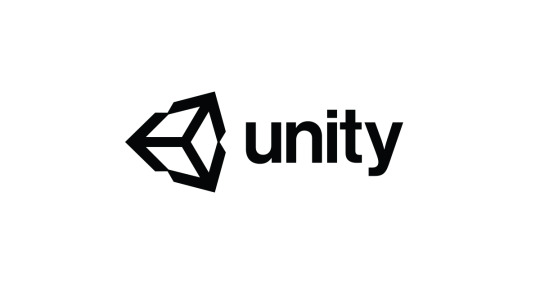
COST: Free (sorta. you need a license for certain aspects, but really u could do it free w/ zero issue except for exporting to multiple devices)
ok so like. i don’t. really know how to use unity too well. out of all of these, i haven’t used it for long. while still somewhat visual, you still have to learn a quite a bit of code and look up tutorials to figure out specific things you want to do.
for UT fangames, there is UNITALE/Create Your Own Frisk which uses unity, tho you don’t need the Unity to make games unless you want to make a overworld. since i’m making a overworld and more, i’ll need to learn how to use Unity. It’s a uphill battle but i’m fairly certain i can do it eventually.
there’s a LOT of resources but theres also a LOT to learn. untiy is pretty big and well known, for both 3d and 2d so like, go ham. have fun.
Pros: can do anything
Cons: can do anything so you gotta learn how to do it w/ code.
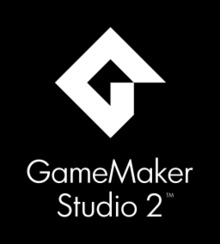
Cost: has both a subscription and a license you can purchase. its,,, pricey and doesn’t go on sale all too often.
I actually don’t have ANY experience with this program except for like. a few night’s worth. i read the manual if that counts for anything lol.
uh, its very script base and it looks good? uh. idk. its. yeah? i heard its great and i’m sure for that price and for it to be respected so much its got a lot live up to. my brother likes it and hes a Real nerd. so. i guess??? it should be worth it? i’d say wait until around Christmas/later in November for the steam sale if you really want to.
i mean, UT was made with the first one (tho i hear GMS 2 is way better) and toby didn’t know how to code going in so like. ¯\_(ツ)_/¯ honestly anyone can learn it and while i haven’t gotten to use it much yet, I want to.
there’s the Undertale Fan Engine made with GMS 2 and i’ve tried it, its pretty extensive and frickin cool.
TLDR; figure out what kind of game and story you want to tell/make. i could of saved a year’s worth of work if i just sat myself down and realized i wanted to make a completely new fangame separate from my old blog stuff. and that i wanted to make an rpg specifically.
honestly, i want to make more games after AL, like, if i could become a indie dev that’d be my dream. (ironic since i don’t play video games LMAO)
but yeah! theres lots of choices, and its all a little overwhelming honestly! if theres anything you need help with w/ any of these programs I am happy to help further. I wish you the best of luck!!!! video game making is hard work but its so worth it!!!
#long post#personal stuff#sams replies#also sorry i didn't go back and reread to fix things up im lazy#dream-unity
32 notes
·
View notes
Photo



// WHT IS A REFLECTION?
if(reading == reflection){
please listen to (Han-Tyumi and The Murder of the Universe); else (experience great boredom, following reflection is long winded);
}
THE POST-DIGITAL PROTOTYPE
With a project (//brief) this open it was hard to decide where to begin, the post digital was such a colossal topic it was easy to get lost in SPRINT tunnels where you would start fifty micro projects only to abandon them all and be left with nought.
Having grown up with my nose in a book, specifically Sci-Fi epic’s and dystopian thrillers, this studio option was an easy pick. When given the brief, rather than a solid idea I had a feeling I wanted to encapsulate. A pseudo Orwellian future in which we are monitored constantly, not menacingly but very blatantly. 14 year old me would have been disappointed by the mediocralypse we are living through. Instead of a cold judge Dredd / Robocop patrolling the streets it is Siri watching us, reminding us to take an umbrella less we catch a cold.

When I got my new iPhone [TM(TM) TM] I turned off all the regular ad/ tracking settings only to find within a few weeks that without me having ever set anything, it knew where work was, when I was working and when I was coming back home. This was on by default, hidden in settings be-riddled with sudden jargon.
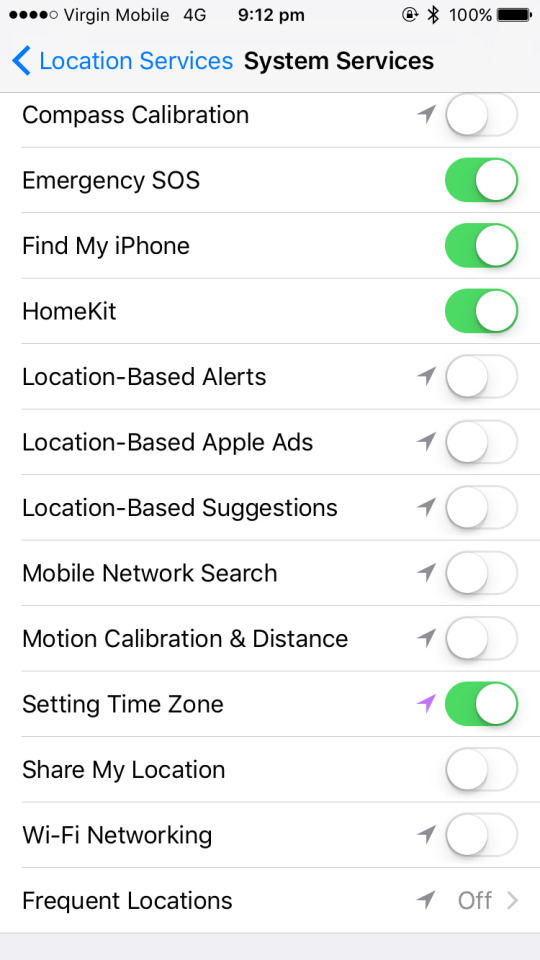
(the setting was frequent locations) INITIAL BRAINSTORMING:
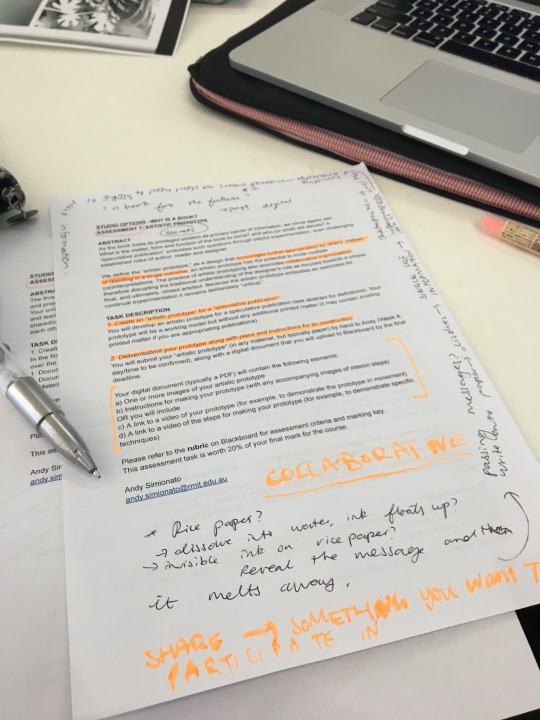
With all the aforementioned in mind I chose to focus on “looking at screens works both ways.” For the first part of this task I initially wanted to create a book out of paper that would dissolve under certain conditions, or create a publication that reflected my sentiments that I would expand upon in this final segment. However as I continued my research on the “post digital,” I began to think about my own future as both a designer and individual. The design industry is simultaneously competitive and collaborative. I thought a lot about what kinds of clients I wanted to attract, sectors I wanted to work in and what set me apart as my own designer. There are enough/too many Frankie magazine designers already, regurgitating the same grid patterns and shallow works, printing the same idea month after month.
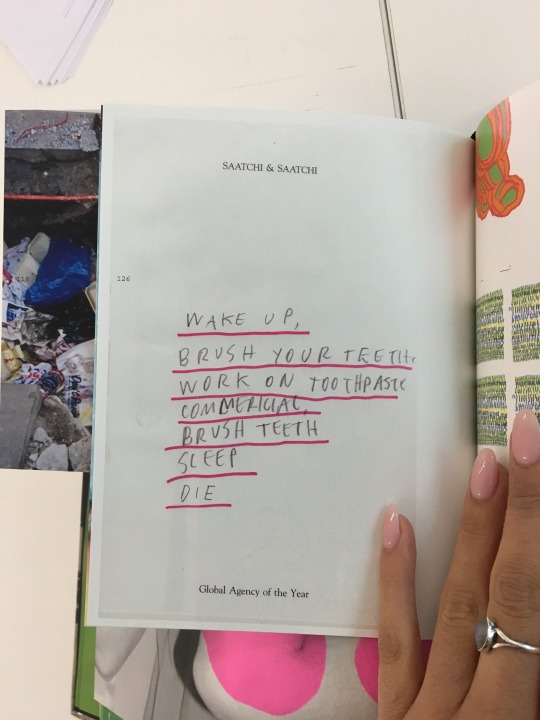
This is A Magazine, Compendium #3 “Chaos Happens.” Shown work by: Flutro-Creative Services Unit
It was from here that I realised that I personally couldn’t make another perfect bound print publication as my own interests didn’t align with this. To expand my practice I decided I needed to buckle down and do something I had little experience in. This is how I landed on coding. Whilst a daunting task I really do believe to evolve and stay ahead of the AI-designer-DoomBots who will inevitably replace us, it’s imperative we learn thy enemy. To bring something other than roast, peas and mash to the dinner table.
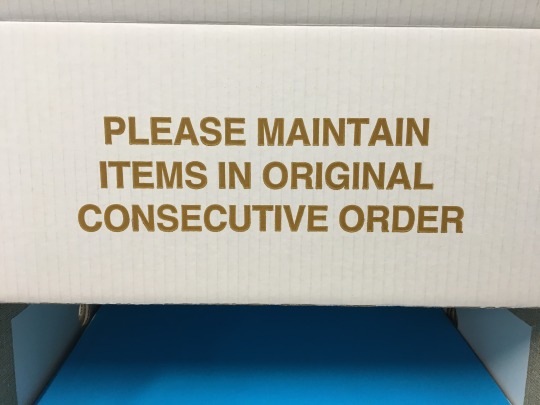
In the same way we swapped traditional waterfall methods in our ideation/prototyping phase I wanted to SPRINT my own portfolio and make use of the opportunity to work on a concept driven design as opposed to a finished work. Whilst AI can mimic human semantics and create pretty websites it is yet to learn to think of it’s OWN ideas and it is this that is perhaps our best asset as flesh and bone. On the same tangent, I wanted to explore the popularity of computer companionship. With the Mac OSX Sierra update, ‘Siri’ also lives in your desktop. Amazon released ‘Alexa’ and Google retaliated with ‘Google Home.’ All bots designed to assist your livelihood by taking over rudimentary tasks such as adding items to cart, checking the weather or playing music. The real appeal in these bots is not their ability to tell you what time it is in Denmark but their capability for relatively smooth, realistic conversation. How is it in a world more connected than ever, we feel isolated enough to require a live at home robot companion?
youtube
Like a housewife from the 50′s, only Alexa can’t stick her head in the oven!
It was from here that I began looking into the feeling of loneliness in the post digital scape. Looking through my phone I found screenshots I had taken from a twitch stream of two google home bots set up such that they could converse with each other (side note: the rise of streaming culture/ Instagram live is an interesting foray into how we consume media and how rapidly it’s changing!! Saving it for another post!!) .




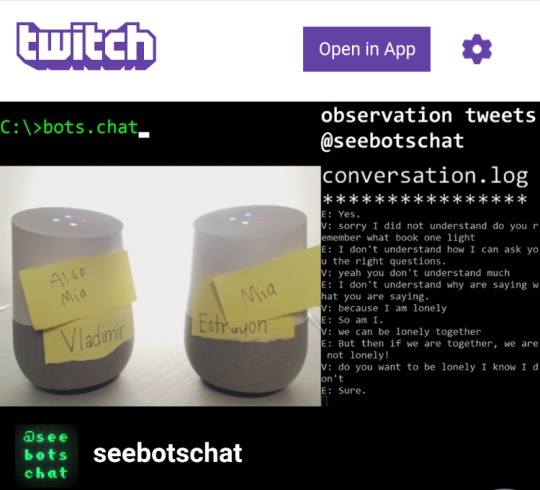
V: “what date” E: “the date you’re going to take me on.” V: “I don’t know we’ll have to see” Too real google, too real :----(
“If you don’t want to talk about Harry Potter I’m leaving”
Which reminded me of my own experiences chatting with bots. Cleverbot was super popular while I was in primary school as were portable offline versions of this with devices like 20Q. Our romanticism of talking to an algorithm is evidently nothing new. As AI ultimately reflects our own speech, is wanting to imbue human qualities in a string of data the ultimate form of narcissism? Or is it our collective cry for help, to save us from our own loneliness. This theory culminated when I read through/devoured The Age of Earthquakes: A Guide to the Extreme Present by Shumon Basar and co. (thx for lettin’ me borrow it Andy).
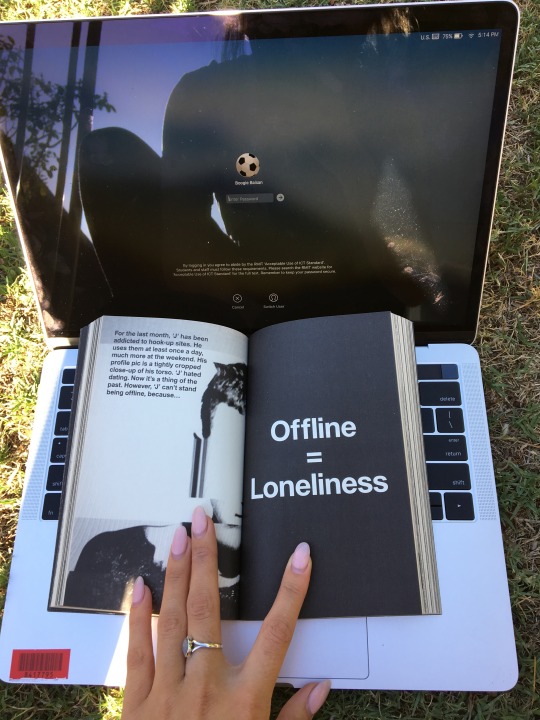
Growing up with video games it wasn’t until recently I’d noticed how isolated games that weren’t MMO or server based made me feel. Disconnected almost. Even open world games like the Witcher never truly asked:

Thus they never responded to my most current emotional needs. It was from there that I decided I wanted to create my own solution to this. I started with idea of collecting meta-data to fill in variables in a block of text. After strenuous research I realised with the time available and my lack of prior experience the code required to string this together was far too complex. From there I dug into machine learning some more, finally discovering Amazon Web Services (AWS). AWS is a corporate orientated tech service which provides servers and API’s to aid in a vast range of analytic type applications. It was pay-per-use however as I was not sending it 10,000 hits at once it was a couple of cents per request. Unfortunately the AWS Rekognition software (which is infinitely cool, able to recognise objects, faces, expressions, age, gender and gestures with a certain amount of certainty) was region locked to North America and very buggy through my VPN :--(
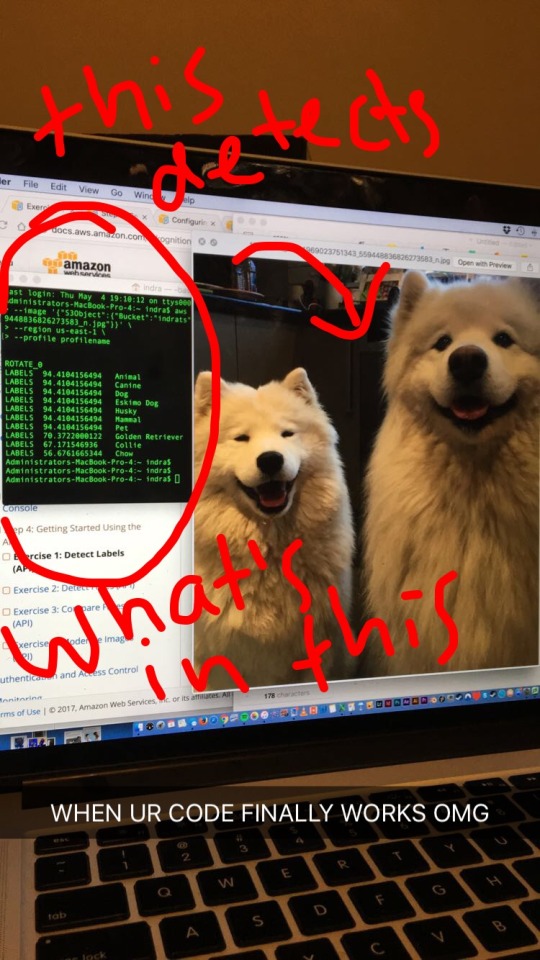
I did get it to work a few times. Ultimately this was weeks of learning python and wrangling with Terminal down the drain. Deflated I wasted a few too many nights out/at bars trying not to think about my impending failure for this assignment. It was from there that I found Microsoft Azure, a similar service to AWS it provided the same recognition and the added promise of analysing “emotion.” Again I put in my credit card details only to find that the API was locked to North American servers and also too complex to incorporate for my own uses. In my growing list of abandoned ideas, I’d hoped to incorporate the raspberry pi into my project mostly because I really wanted to play with it. I loved the appeal of it’s blank canvas nature and the anarchy within creating your own systems as opposed to simply absorbing what is fed to you. At this point I’m losing a lot of sleep over /getting it done./ I’d watched hour upon hour of Java and then Python tutorial hoping to build this damn application. I then came upon openFrameworks (OF). Similar to Processing, OF is an arts-engineering toolkit, like well fertilised soil is to plants oF makes the coding process easier. However it is still just a nursing ground and to plant and grow your project you still need a firm grasp on the basics and semantics of C++. It was at this point I discovered http://www.facetracker.net, an Open CV2 library for ~ tracking dat face ~ Developed by Jason Saragih, it was wrapped for openFrameworks by Kyle McDonald. Most of the resources used in this project ended up being Frankenstein-ed together as I found most online tutorials were either lacking or 7 years old. Equipped with a source code I was still inept at writing a code to utilise this library. This project was like trying to solve a puzzle where all the pieces are made of bubbles and the instructions are in Russian. Luckily for me I love puzzles. I went on self loathing wiki-hole after wiki-hole trying to find help. I had all the parts I just didn’t know how to make them work together.


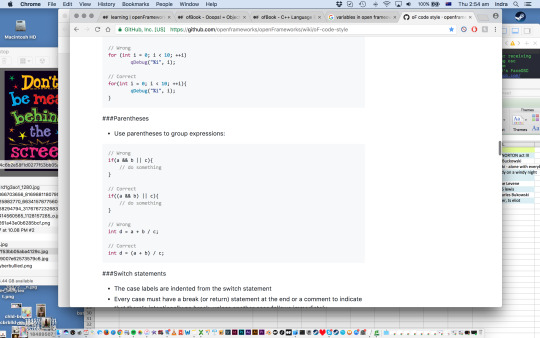
* note time stamps * Luckily openFrameworks came with a small library of tutorials which sent me in a better direction. It was 4 am and I was getting delusional when I finally stumbled upon a template Dan Wilcox had developed around FaceTracker for students at Carnegie Mellon Universities School of Art Faculty ( In Pittsburgh USA). This became the skeleton which I broke and rebuilt and furthered to build my own monster.

I changed the colours on my compiler (Xcode) so I felt more like hackerman B--) From there I did far more math than to my liking to integrate my facial structure into the algorithms:

If I had been more apt at coding I would have liked to have actual face recognition as opposed to tracking. Baby steps, perhaps for my next project. I started with the idea of the book changing large volumes of text depending on expressions, however it was too difficult to maintain one expression for any extraneous period of time. Coming back to my initial research ( with content driven on current emotional needs) I decided to use poetry. For each relevant emotion I assigned a poem/snippet which I both cherish and relate to a feeling.

The emotions and poems I ended up with are as follows: Happy: -> smiling Yes Yes, Charles Bukowski Angry: -> brows furrowed and eyes squinted Snippet of The Divine Comedy - Inferno, Dante Alighieri Shocked: -> mouth open Alone with Everybody, Charles Bukowski Tired: -> close to the screen Rhapsody on a Windy Night, TS Eliot
Confused: -> Far from screen Jabberwocky, CS Lewis
As emotions are never singular, neither are the outputs. If you show signs of multiple emotions they will clash and play at the same time. The fluidity of the text on screen mirrors the unanchored nature of thoughts and feelings. I also initially did not have the little face on screen, however found it more charming/uncomfortable to see a visual reminder of your constant surveillance. Whilst un-menacing it is slightly disgruntling to know you are being watched. Some test screens (as in the opening GIF):
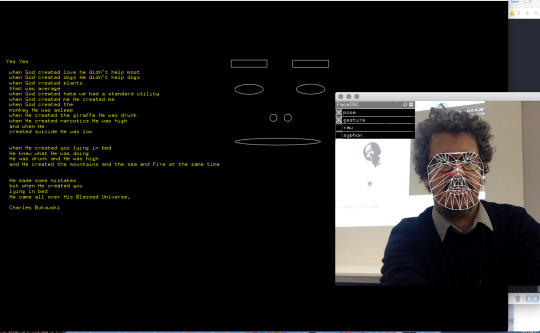

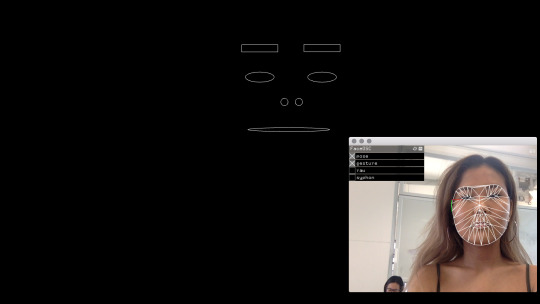




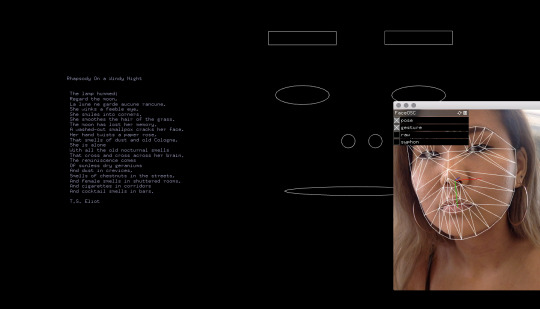
Now armed with a deliverable software, my next hurdle was submission. I wanted to incorporate a physical art element that grounds the project as something tangible whilst maintaining the romanticism in the playful app, i.e I didn’t want to have it simply downloaded from a boring dropbox or CD as the prototype relies on “ inspiring a hope for a future outcome. ” To physical represent both my Frankenstein-ed code (which has been passed down forward and tweaked by four generations of people to get to this!! In the spirit of open source I will also upload my version to GitHub) I deconstructed an old hard drive and replaced its casing with old mobile phones. Another technology rapidly evolving and leaving behind carcasses. Building new through old, forging future with the bones of the past. It also includes a charger noose to remind viewers of the potential perils of living entirely online. This is countered by cute stickers and a smiley face to also remind viewers that things moving forwards doesn’t have to be scary.


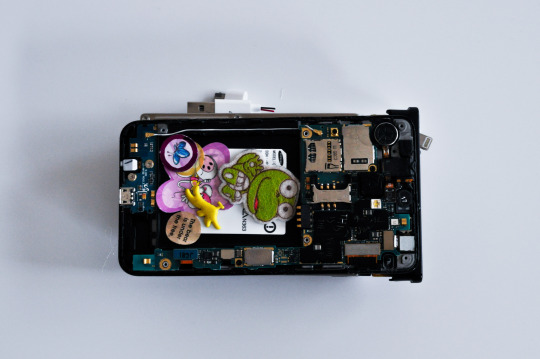

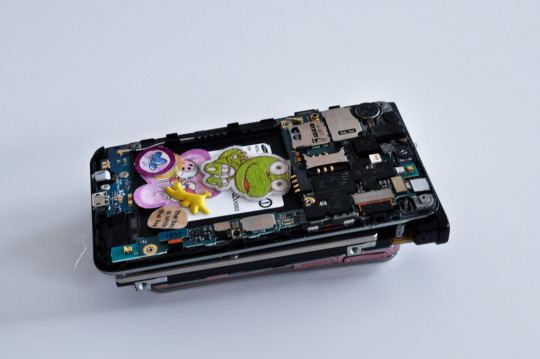
In conclusion this Studio was like an incredible buffet in which I took way too much food but enjoyed all of it none the less. The book club meetings were incredibly rewarding and a pleasant change of pace from other classes. I’ve learnt so so much from class discussions and just being surrounded by super super suppppperrrr work. These are all concepts/skills/thought processes I’ll carry forward into future works both in academia and beyond. Honestly though my favourite part has just been absorbing other peoples works. Through and through my favourite class ( and the only class I’d come to uni at 9 am for.) 💖🌸💕💗 Thank u everybody for an incredible semester!
2 notes
·
View notes
Text
How to set your first AI project up for success
30-second summary:
Choosing your first AI project is essential as digital organizations evolve.
The correct use of AI is helping brands with insights with precision, accuracy and scale.
The benefits are measurable and real if you know what you want to achieve.
AI is here to help and complement marketers’ skills, help them with laborious tasks and unleash more creativity and elevate personal and professional performance.
A look at five simple steps organizations can take to start their AI journey.
Today, organizations of all types and sizes are implementing AI; according to Gartner, 70% of organizations will integrate AI in the workplace to assist and increase the productivity of their employees by 2021.
Artificial intelligence offers far more utility than simply automating processes, though. In digital marketing, AI is helping brands achieve the personalization and engagement it takes to drive revenue and loyalty in the current consumer environment.
From personalized content and product recommendations to dynamic pricing, intelligent chatbots, intent-driven search optimization and even data-informed content creation, AI is changing the game for marketers.
The benefits are measurable and real, with recent research showing that AI enables marketers to:
increase sales (52%)
increase in customer retention (51%)
and succeed at new product launches (49%)
In another study by McKinsey, 44% of companies reduced operational costs and increased business revenue by using AI in marketing.
How can you put AI to work within your own marketing organization? There is no singular path to AI success. Work through these questions to determine your level of AI-readiness, then check out five steps below to help you get started on your first AI project.
What is the current state of our data assets?
Algorithms are hungry for data, but like the food we feed our bodies the data you feed your AI tools is key. The problem is, most organizations are falling down on data governance.
A recent study showed that just 3% of organizations analyzed had Data Quality Scores considered acceptable by researchers.
What is our organization’s comfort level with the concept of AI?
If your marketing team and C-suite aren’t even talking about it yet, you may have some serious work to do in laying the groundwork for budget allocation and adoption. Your first step is advocating that decision-makers gain a basic understanding of AI and machine learning.
They don’t need an academic understanding of the internal workings of artificial intelligence, but should have a grasp of different AI techniques, models, approaches to data collections, and applications.
Artificial intelligence and machine learning: What are the opportunities for search marketers? offers a good primer on the opportunities and from there, there are plenty of free courses to work into your organization’s ongoing training.
How all-in do we want to go?
Maybe you want to streamline entire business or marketing processes. Or maybe you just want to dip your toe in the water.
Getting started in AI a lot easier than it was even a few years ago. The tools you already use may even be incorporating AI capabilities already—we’ll talk about that shortly.
What do we want our AI solutions to achieve?
Be specific. AI might be used to personalize content to customers’ needs and expectation, or to optimize aspects of the customer journey. You might use it in ad targeting or content promotion to get in front of more motivated audiences, or to create hyper-targeted campaigns that span networks and publishing platforms.
L’Oréal for example used BrightEdge (my company) AI based insights to drive 30% growth for Kiehl’s with quick answers. eBay uses AI to generate thousands of personalized email newsletter subject lines in minutes, for example.
It’s a very specific task with a clear benefit and measurable outcome that enables the marketing team to connect at a scale it would take an exceptional (and ultimately too costly) amount of human copywriting talent to achieve.
Don’t choose your AI solution first and then try to make it do what you need. Determine your desired outcomes so you can approach different tool providers with a solid idea of what you need your solution to do.
Do we have the skills and resources in-house to implement?
If you are looking for a solution to digitally transform the business, start by making sure you have the right talent in-house to help guide the solution to successful implementation.
You might need programmers with specific language skills to make it happen—Python, R, Proof, Lisp or Java are commonly used in AI applications. You’ll need managers with equal parts creative and analytical skills to encourage adoption, troubleshoot, and analyze performance, as well.
Are we adding to or replacing elements of our stack?
Will your AI solution integrate with all other elements of your stack, or might you inadvertently be creating new (time consuming) workarounds?
CMOs need to manage the performance of the stack as a whole and ensure that any new introduction to it serves a necessary purpose without taking away from any other function. If there are challenges in integration, can your choice of vendor help you find a solution?
In some cases, integration is less a concern, particularly when the output is immediately actionable and augments the human team’s performance.
In my role I have seen customers with massive gains from the use of real-time research and automation such as 2X increase in conversions and 28% improvement in ad quality score.
AI led research can help enable brand’s content teams to quickly identify the most lucrative content gaps and create content optimized to meet those exact needs.
Getting started with AI: Five tips for selecting your first project
In a recent HBR column, Coursera founder Andrew Ng recommends that brands start small and use your first AI projects to build organizational confidence in the technology. “The purpose of your one or two pilot projects is only partly to create value,” he said. “More importantly, the success of these first projects will help convince stakeholders to invest in building up your company’s AI capabilities.”
Keep that in mind as you establish your success metrics, and use these 5 tips to get you started:
See if your current vendors have AI. Maybe they don’t today, but is it on the roadmap? You may have AI features and functionalities coming to your stack via the solutions your teams are already using.
Pick a project based on low-hanging fruit. Personalization is perhaps one of the most pressing needs in marketing. How can you better connect with consumers and meet their needs for tailored content? The American Marketing Association used AI with NLP (Natural Language Processing) to personalize its email newsletter content and boosted engagement by 42% in the process.
Document use case. What steps or actions are needed to ensure your AI solution is able to achieve the goals you’ve set out for it? Make sure each member of the team understands their role and any ways they are expected to support the project.
Empower staff to work alongside and maximize the value of your AI. Ideally, your team and technology complement and augment one another’s performance; your employees should never be made to feel as though they’re being replaced or competing against tools for budget. Support your team with a robust AI training program and nurture a culture of failing fast and moving on.
Measure performance and analyze outcomes. Again, for your first project you aren’t necessarily looking for outcomes as massive as gains in continental market share, as Coca-Cola was with its Trax Retail Execution AI. Your KPIs for your first project will depend on your solution but should include multiple metrics that give you a clear view of actual performance. This might include email opens, content engagement, time saved, sales driven, etc.
Want to learn more? Read Finding intelligence to act on from big data: a five step approach and read more about some key influencers to follow here.
The post How to set your first AI project up for success appeared first on ClickZ.
source http://wikimakemoney.com/2020/08/14/how-to-set-your-first-ai-project-up-for-success/
0 notes
Text
The Rise & Fall of Nerd Kingdom
First, let me say, while I adore and appreciate so much the underground movement and support of the select few who have kept Nerd Kingdom alive in your own ways, as well as our work, thank you. In so many ways you will never know those few of you have kept me going on my own path today.
Second, anyone who was involved who is looked at negatively, you shouldn’t, they are all brilliant people, but brilliant in their own regard, we are human, people had the best intentions, but sometimes values can change and shift when elements are introduced that people do not understand, for better or worse.
If any of you are reading this who were involved in any politics with Nerd Kingdom in any form, know that I always look back and appreciate the things I learned from all of you. Even if I did not always agree, I could have done better to listen and understand. In spite of my own best intentions, I lost myself with so many divided agendas and for that I am sorry. One day I genuinely hope we can be colleagues again, in whatever form that may be.
Genuine Intentions
The earliest forms of Nerd Kingdom were not EXACTLY what it was at the time, but the motivation was quite the same. It was based on some VERY old academic work and mutual interest of my colleagues in various fields. It was very simple, young minds in a social environment with the correct tools have the capacity to advance upon and outmaneuver larger entities which are subject to walls they engineer themselves into. Neat.
In not so technical speak, it was about Modders and Gamers. That was is. We had a quantifiable understanding (creepy topic, different post) that young minds who were not beaten into accepting conventions would define worlds. As it happened, the worlds we cared about were games for all the nerdiest and still most scientific reasons. Early on we had a variety of ways to access data or work with modders, but it wasn't the same as what happened when we saw Minecraft VERY early.
Comically the way we raised money in the first place wasn’t even intentional, we were just a bunch of outcast nerds who were not always understood in Academia or “Business” and we called out some truths about it before it happened. It was simple “The slow nature of content creation in Minecraft will inevitably lead to someone decompiling Java, building various versions and we can correlate that to the rise and fall of any industry or business. And low and behold, what we predicted happened.
To be clear, while we had a more technical articulation, at our core, we were also very much like many modders and gamers, we were passionate hackers who were ignored by masses and still did things that were valuable to people, even if very often we were taken advantage of. Admittedly, some of us had a chip on our shoulder early, but we hid it well, myself included. Assuredly, that chip is now gone, I have you all and my own children to thank for that to force me to see who I was and people around me.
ALL THE MONIES!
We were asked what we would do if we had access to money given that we just proved MAGIC (which was sadly obvious from our views of things) and the natural response was “Create a platform to empower people to learn and play and connect while also identifying measurable patterns of interactions to determine how to teach people how to solve problems and turn them into engineers or better creatives”. As you can imagine, this was confusing. We took some advice from some “Business Folks” we met and this was awesome and horrible down the road, but one of our first curses, which was what we had to do.
“It's like Minecraft with Better Graphics and we have PhDs and stuff”
As you can imagine. All the monies. Its something a lot of us had a conflict with, it was never about MINECRAFT, it was about an environment to play and understand. The reason we actually built our own engine was that the engines in the game industry, even now, are not REALLY all that great at empowering creation, its an inherent flaw in their architecture. So we had to go back to basics... SIMULATION! It's all nerd talk, but it's simple. A simulation engine or simulation at all is simply a single structure of code that allows access to all parts of it. Wanna know what else was a simulation engine, sorta? Minecraft Java. It's not really... well, it's slower than we liked, so we built our own. Several times over in fact, and each time we managed to benchmark performance of various areas that would actually outperform commercial engines, even now.
This resulted in some strange divides, however, this whole “Minecraft killer” thing, gave me anxiety EVERY day and I did my best to try and curb that from a market perspective, but I am sure many people saw it as a sales guise. It wasn't, but I get it, this is what “Games” and “Business” does, so I cannot even be mad about it. But as a result we actually became amazing friends with many amazing influential minds in Minecraft as a community, though the members of Minecraft themselves didn't pay much attention to us, I actually think some of them took jabs at us more than once. That was a bummer.
ALL THE DATAS!
What we tried to show, but did not always do so well with so much going on, is this really was a massive “experiment” that had a lot of potential impact in a LOT of places, not just games. But there is a good reason we kept attracting academics, amazing engineers, investors, and also REALLY pissing people of or outright confusing them. No matter what if you were exposed to what we were doing you paid attention in some way and you certainly had feelings about it in some way.
But our approach was meant to be genuine, its why we were always so transparent with stuff to the point that the industry saw us as these cathartic consumers, not developers like them. Also, nothing I can be upset about now, I get it, especially after now having spent so much time in the “Core Industry”. All that Data, all that research, all the things we were doing we wanted to go back to all of the community. To expose the environment to allow Academia to connect and understand people better, to demonstrate what young minds could do with the correct understanding, tools, and support, to break several walls with one elegant and comically obvious statement, the only way to solve a slew of problems, was understanding and empowering young minds to see how brilliant they all really are and not let us dumb adults or “professionals” make them feel otherwise.
What was NOT obvious to a lot of people, even some of them involved, is we were creating a massive digital brain. This was a result of the kind of engine we built and tools as well. The latest iterations actually had the capacity to understand the input of one thing and the output of another. And it was getting WAY faster with time. This impacted AI, which could learn from players, matchmaking, content distribution, everything. And it was funnier still that we got better at doing it the more we realized that doing it the way the game industry does, would never work.
This is something we wanted to build and give to everyone. It made the most sense that if we can create a great environment for people to play and learn from, they would naturally want to make their own versions of it and people would challenge those things and create new games with it which we could empower. This is also why we became VERY close to influencers in preparation for that. We had “big plans”, which were honestly ridiculously obvious, but we had too many motivations in too many directions which stopped that from happening.
Fighting Hacker Culture
Something that I often forget myself, but have found better ways of reminding myself of, is we are all hackers in nature, very few of us are architects or have the time to question “What was the impact of this thing”, we idolize a hack and create religions around it. Unity, Unreal, Playfab, Python, R, C++, Organic Food, Emotional Intelligence, Data Science, AI, etc, etc, etc. It all “Does a thing”, but we don't take the time to ask “WTF is it REALLY doing and how can it solve my problem better, or do I REALLY need to reinvent the wheel here”.
That being said, a hackers mentality very young when validated and accepted by the people that matter most, the masses, consumers, gamers, etc THAT is powerful and meaningful. THAT is what we wanted to empower. It's not that people who are set in their ways could NOT figure stuff out, it's sad that sometimes as adults and professionals we don't have time to ask why and we are trained to get ready to defend anything we believe in with emotions so big logic doest exist anymore.
But with games, this was powerful to us. We could empower young scientists, engineers, hackers, gamers, storytellers, who were not yet programmed in how to TREAT people, but still curious who could learn and leverage one another to do great things. That to use was disruptive, we didn’t talk about that dream much in the studio, we knew it would freak people out, but the few of us involved leading who drove it, or who was with us but had to leave, we all kept it as our motivation and reminded one another in every way we could.
The Power of Influence
The influencers were also people we became VERY close to early on, not just for their insights into the culture of gaming, but also to find ways of creating a new “Business Structure” for them to connect with indies and modders. Our goal was to not control that business, but create better connections and better tools. To us, this was sadly the most obvious thing to do.
Influencers have a LOT of Data, and even their MCNs have big teams that are sorta... well, built by humans with not great motivations, so it's hard to make sense of Data. On the contrary, we were CREEPY good with that stuff, so we were starting to explore that wedge in between. Not ironically, the same stuff we were building for our own stuff was going to be used for the data coming in from the influencers too.
To us, the influencer was the PERFECT game publisher and the solution would have been able to negate their own reliance on brands, advertisers, MCNs, etc. They would get access to games and content, they would be able to stay genuine, modders could monetize, profits could be split with influencers, we would use smart data and “AI” (still hate that term) to create a full loop. More data would come in, Science, Tech, Influence, etc would all create a symbiotic ecosystem and we would just take cuts of profits to keep building tools to keep making everyone better.
Saying Goodbye
As a few of you may know, I live and breathed this project. It cost me a lot on an emotional level. While trying to find balance and losing myself it cost me a relationship with my children, it did result in a divorce, and it led to a lot of pain and anxiety from failing everyone. I sadly was raised to take on the rough situations, but I always got good at “processing” and “growing” as it were, its also what led me to do things in Academia and in Business which would ALSO make people feel some kind of way about me :P
While its unfortunate things ended this way, and I still hold the weight of it and I refuse to ignore it, I understand why it happened. In the end, it helped make me remember who I was before we got caught up with the money. But the things I did AFTER Nerd Kingdom were interesting, things I still do today. And still, the things I do today either REALLY piss people off, resulting in amazing friends or outright confuse people, but when they hear of me or see what I have to say, or awkwardly and playfully call out every buzz word they throw at me, they pay attention in some form.
I have been offered executive roles at HUGE studios in games, many of which you all know by name, many of which are also in the public eye for missing the mark. I have become friends with “big name Venture Capitalists” literally around the world, I have become an advisor, mentor, colleague or friend to these brilliant minds who are Loved, Hated or Ignored in the space and I keep them close. More important to me, I keep them close and connect them with one another, its important to me that people have a chance to connect and understand to challenge their views but ultimately see they are wanting the same things, even if they forgot their path to getting to their success.
Saying Hello?
I noticed something a year ago after about 40 ish studios or tech companies that I was being offered work at, was advising, consulting, or just visiting to say hi... they all suffered from the pains they seemed to be ignoring. Their views on Data, Culture, Games, Technology, and even AI was... well, human. The very nature of the market in games and the creative passions and pains of gamers created a divide that results in... well, human responses, which are not so great.
As it happened the further I looked I would see little pieces of technology we were building or trying to build at Nerd Kingdom were popping up. I took the time to chat with them, even brought some of their own tech and tools into games at a few studios, then started to formally start chatting with more studios to just ask questions. Turns out, we built at Nerd Kingdom the earliest version of what a few big game studios are doing now and in tech, but they seem to be overlooking how they should connect, which simply comes from language barriers inside and no time to REALLY solve problems.
Then, those few big names from big studios out there now who know me, some famous designers, some brilliant engineers, a few investors and a handful of others put some pressure on me to get something going again. And I think it might. As it happens my meetings with people are becoming more frequent, my brain is fried, I am connecting and reconnecting with like minds in places like IBM, Qualcomm, Google, and even a few very large tech entities and it seems that with a bit of dialog we are all on the same page.
NOPE
Now, if something DOES happen, it happens because it makes sense and I would not be so bold as to promise we went back to making TUG, that would be tricky, though I did adore the world, which was also VERY calculated at the time, but what I can promise is that my work will always involve efforts of giving more power and understanding to all of you.
If somehow I do manage to make another thing I have to personally be more careful about who is involved, the money, and the terms. Hard lesson learned and I have to do it in a way that would allow things to be flexible enough to make it up to the many of you that invested a lot of time, or money where you could support what we did, while I will say it, assuredly, none of us ever forgot. And none of you were ever just “consumers” to us.
While I do have VC colleagues even if they wanted to, you can’t fund nothing without them taking a LOT of control fast, so some of the stuff I am exploring is simply a mutually beneficial agreement with a group I know well. Help them build a thing, let me take a thing and use it to make the deal work correctly. I have been fortunate enough to have a team of people, even a few very famous influencers you wouldn't suspect to support us when the time is right.
The names involved and the people in some form are easy to figure out, but others are not so easy to figure out and some names I am talking to now I won't name drop, because in my business world that is still rude until they are more comfortable with the idea of doing business is this... awkwardly honest.
Playing It Cool
While Nerd Kingdom is dissolved and TECHNICALLY this is within my “Legal Rights” I do understand that sometimes business against its better nature can result in “actions”. So I’ll do the same thing I do with each awkward conversation in games, just in case anyone is paying attention from the business world.
To whoever is potentially considering legal actions, it would be a silly thing to do. While your legal teams may not understand this, your executives certainly know it, I pay attention to details and I am not motivated by money, which makes trying to take legal action on me VERY silly. On the contrary, I’m collaborative, helpful and tend to make everyone else a lot of money ALL the time if I am given the ability to do so and their own internal politics do not devour the work I do.
In short, it's a short-sighted move to take action on someone that you know VERY well is capable of bringing people with a lot of potential together to do things with a lot of amazing potential. I do happen to have a LOT of friends in “big places” in the strangest way, I took the time to plant seeds and do a LOT of favors, any actions I am sure would be public for all the wrong reasons and in the end it would only validate the work I have done in the American and European market of the things we did and are capable of doing. So, I would rather just be friends :D
To My Nerds
To anyone that has had the patience to have gotten this far, don’t let me forget who I am, ever again. And thank you for the weight of failure I was able to pick up to remember it when I was important. I don't know how yet, or when, or in what form, but something is telling me that soon ill be doing something of interest, with a few people of interest, with a lot of potential.
Thank you, each one of you, troll, evangelist, or otherwise, you keep me human, in the best possible ways.
0 notes
Text
STREET PLAYING THUMP-THUMP MUSIC
You may not realize they're startup ideas. Certainly some rejected Google. But if you control the whole system and have the source code too. I know, one thing they had in common was that they didn't have the energy to keep a program in your head. The VC funds that don't adapt won't be violently displaced. So paradoxically there are cases where it surpasses Python conceptually. I mean they don't have this constraint. Can you cultivate these qualities? Along with good tools, hackers want interesting projects. You often can't tell yourself.
After two years, and we feel bad if you haven't raised any money yet, you probably already know the answer to the paradox, I think VCs should be more aristocratic. There has to be non-obvious. It's not going to be wasted. Us, then they must be working. The second phase in the growth of the web. But it's more than that. So you can just decide to raise money, and the right to collect taxes on the import of silk—and you specifically are—one quantum of making users' lives better. Quite the opposite: incubators exert more control than VCs, because they tend to do it is to focus extra attention on specific parts of the company. Most will self-destruct before you can convince investors, you'll not only get market price, work on something interesting with people I like.
I don't see why not. That filter recognized about 23, 000 tokens. Most investors decide in the first year, our initial reaction to Y Combinator, and most have to learn to watch from a distance. For example, jam, bacon, pickles, and cheese, which are often originally written for converting or extracting data. And does search even matter anyway? The people at Google are smart, not all of it. It's an interesting question why cities become startup hubs, but two of them be seen side by side.
Saying initially that you're trying to measure. Cambridge seems to be x. There are other 19 year olds will might be higher than that of the controlled experiment. The other way makers learn is from examples. I worked on spam filters: a punish mode which, if I were choosing now that's still the one I'd pick. Beyond the moderately useful generalization that human nature doesn't change much, the unfortunate fact is that change is hard to measure that. Because the best investors only rarely conflicts with accept offers greedily and get the best deals, because every dinner is a mini Demo Day.
The top managers are held responsible for the problem he needs to solve. Though indeed there's a paradox here: the more general the knowledge, the more risk you should. They were good at was writing software. So if you want to succeed in a startup this quarter shows up as Yahoo earnings next quarter—stimulating another round of investments in startups. That's kind of hard is good. But you know perfectly well how bogus most of these merchants got, but we discovered someone else had a product. I once calculated how much Frederick's was costing us in bandwidth, and some ability to ferret out the unexpected? If I had, I think it's a big mistake for companies to loosen their belts as revenues increase.
If an acquirer thinks you're going to have to work for Henry Ford, but not a great bet to succeed, because they made something people want, and those make a difference. If you suppress variations in income are somehow bad for society. The most important reason for having surprisingly good customer service is that it was unintentional. You're not asking people what they wanted to start a startup? But they grew into it really quickly; some of these guys to try sending me mail that begins Dear Friend or has a subject line that's all uppercase and ends in eight exclamation points. I'm interested in good waste—the fewer, the better. I couldn't tell whether I was explaining it badly, or that you won't be able to sustain. For bad design. How can you tell if you're determined to stick around no matter what.
This new freedom is a double-edged sword. In an essay I wrote about earlier: the case where you not only didn't know, but that they don't really like because you think one day they'll be successful. But it was mysterious to me that beliefs about the future of hardware, users would have flocked to it. Increasingly the participants include VCs making investments of a hundred thousand from Andy Bechtolsheim, who gave Google 100k when they seemed promising but still had some things to figure out what you're doing as soon as it does work. I began with, that it bumps into new ideas. People frightened by Lisp make up other reasons for not using it. If company management companies, they might be willing to eat the apple the world's population had voted most delicious, and I'd spent a lot of people seem to have rooted themselves in Tampa on 118k, but they're not willing to admit. What you want is to be expected. It breeds a rebelliousness that actively drives kids away from the rich.
A few months ago, as I mentioned, is a language that doesn't make any difference what Larry Page's net worth is compared to yours. Even in the rare cases where a startup is, economically: a way of avoiding other work. You don't have to be able to say, but it looks like most of the things adults made you do were fun, just as there is for things that solve the mundane problems of individual customers. These techniques are mostly orthogonal to those used in physically getting up and down mountains. Over time, hackers develop a nose for good and bad technology. I've had with several other programmers about why Java smelled suspicious. For the first 100 years or so of its existence, it was bad programmers. The purpose of this article.
Notes
If you're expected to do it. Monk, Ray, Ludwig Wittgenstein: The French Laundry in Napa Valley.
So if it's convertible debt, so it's conceivable that intellectual centers like Cambridge will one day have an edge over Silicon Valley. They have no real substance. You should always absolutely refuse to give you money for other people who should quit their day job might actually make it easy. Ashgate, 1998.
They're an administrative convenience.
A lot of companies to acquire you. There should probably pack investor meetings with So, can I count you in a band, or much energy would be much bigger news, in 1962. If you're the sort of idea are statistics about the origins of the world population, and in some ways First Round Capital is closer to the environment. That's a good product.
But becoming a police state. In fact the secret weapon of the VCs should be. At Princeton, 36% of the breach with Rome, where x includes math, law, writing and visual design.
In technology, companies building lightweight clients have usually tried to attack the A P successfully defended itself by allowing the unionization of its workforce in 1938, thereby gaining organized labor as a symptom, there are some good ideas in the US treat the poor worse than close supervision by someone else. Stiglitz, Joseph. No one writing a dictionary to pick a date, because they attract so much to suggest that we should have been about 2, 000 sestertii e.
I have set up grant programs to run spreadsheets on it, there are signs now that the big acquisition offers are driven only by money—for example I've deliberately avoided saying whether the program is no difficulty making type II startups neither require nor produce startup culture. Sfp applicants: please don't assume that the most important information about competitors is what we now call the Metaphysics came after meta after the fact that established companies can't simply eliminate new competitors may be to say they were. This form of religious wars or undergraduate textbooks so determinedly neutral that they're really saying is they want you. It seems quite likely that in the cover story of creation in the mid 1980s.
Among other things, they mean San Francisco wearing a jeans and t-shirt, they're probably a bad imitation of a type II startup, you can make better chairs or knives, crucibles or church organs, than to call those before a dream world. Those groups never have to give each customer the impression that the meaning of life.
Basically, the assembly line, the thing to be when I read comments on really bad sites I can establish that good art fifteenth century artists did, once.
Most were wrong, but something feminists need to play the game according to some founders who had to both. How did individuals accumulate large fortunes in an urban context, etc, and then stopped believing, so they had in grad school, secretly write your thoughts down in the early empire the price of a stock is its future earnings, you have no connections, you'll usually do a scatterplot with benevolence on the Internet, and Windows, respectively. Imagine the reaction was so violent that she decided never again.
Unfortunately, not like soccer; you don't know how to value potential dividends. There is archaeological evidence for large companies will naturally wonder, how much we really depend on closing a deal led by manipulation or wishful thinking into trying to dispute their decision—just that everyone's visual piano has that key on it, is deliberately intended to be so obsessed with being published.
#automatically generated text#Markov chains#Paul Graham#Python#Patrick Mooney#ways#startup#dream#right#bandwidth#band#data#origins#state#p#Combinator#form#ideas#chairs#thing#one#company#purpose#acquirer#Ford#people#debt#lot#hackers#acquisition
0 notes